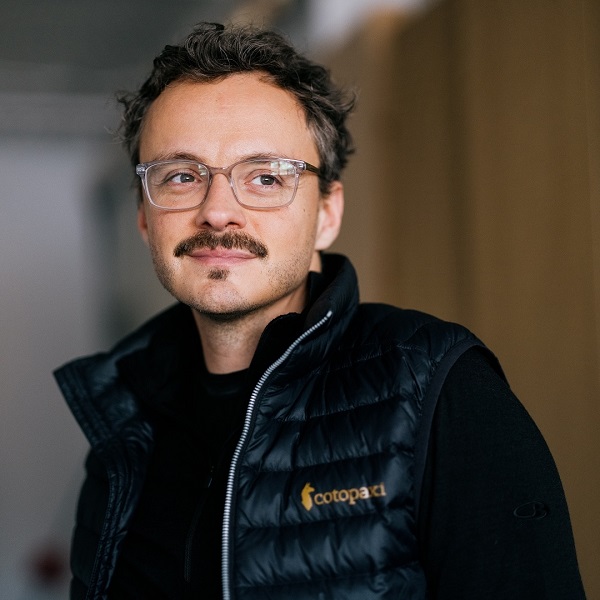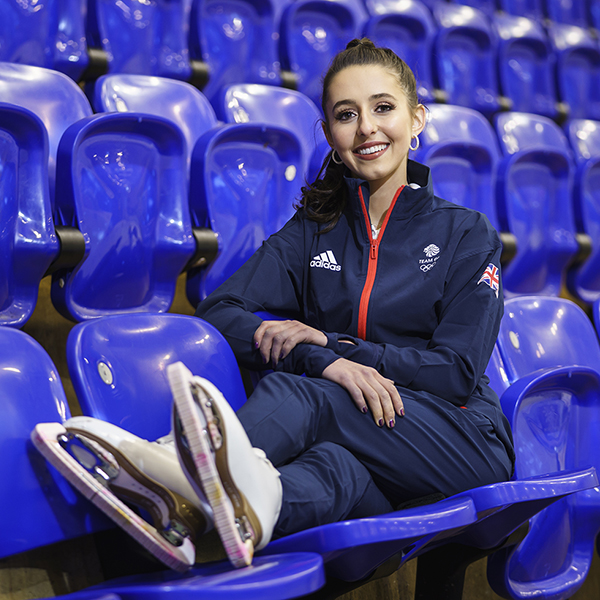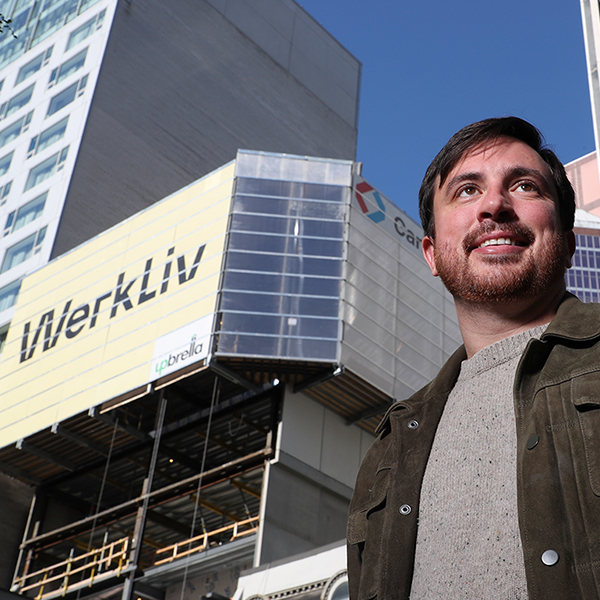Let’s start by stating the obvious: A $200 million gift doesn’t come out of nowhere. It’s not the sort of thing that somebody does impulsively. Since establishing the McCall MacBain Foundation in 2007, John McCall MacBain, BA’80, LLD’14, and Dr. Marcy McCall MacBain have provided funding for a variety of philanthropic causes all over the world. Right from the beginning, though, they had a special interest in education and scholarships.
It’s an area in which they have had a tremendous impact. The foundation’s gift of 75 million pounds ($120 million Canadian at the time) to the Rhodes Trust in 2013 was a turning point for the Rhodes Scholarships, allowing the program to expand into new countries. John is one of the trustees of the Mandela Rhodes Foundation, which supports scholarships for talented university students in Africa. The foundation played a pivotal role in the creation of the Kupe Leadership Scholarships in New Zealand – the top graduate scholarship program in that country. The McCall MacBains have also worked closely with the Loran Scholars Program in Canada, the country’s largest and most comprehensive four-year undergraduate award.
The McCall MacBains weren’t just writing cheques. They were paying very close attention to the strengths and approaches of each of these programs.
“We have been working on scholarships for the last 12 years through the foundation,” says Marcy McCall MacBain. “We have been involved in scholarship programs internationally. We felt now was the time to take what we’ve learned and to use that to build something new.”
There is nothing like the McCall MacBain Scholarships in Canada. The program will eventually support up to 75 McGill students at a time, studying in either master’s or professional programs. The first McCall MacBain Scholars will arrive at McGill in the fall of 2021. For the first two years, all McCall MacBain Scholars will be from Canada, but the program will include international students after that. Once the program is in full swing, two-thirds of the scholars will be Canadian and a third will be from other countries. The scholarships will be similar to Rhodes Scholarships in that students will apply for a scholarship instead of applying to McGill directly. Rhodes Scholars go to Oxford. McCall MacBain Scholars will go to McGill.
The McGill News recently had the chance to sit down with the McCall MacBains to talk about their monumental gift and what it will create.
Why are scholarships so important to you?
John McCall MacBain: I was a scholarship student at McGill. When I came here from Niagara Falls, I had a James McGill Entrance Scholarship and it was one of the things that prompted me to come to McGill. Later on, I was fortunate enough to receive a Rhodes Scholarship, and that was the only way I would have been able to afford to go to Oxford. After that, I received a Canada Mortgage and Housing Corporation Scholarship to go to Harvard Business School. At least one of those universities, and perhaps two or three of them, were only possible for me because of those scholarships.
Marcy McCall MacBain: One of the questions we’ve been hearing is why are we doing this at the master’s level? I think there are a few critical times in a person’s life and this is one of them. I know what it feels like to come out of an undergraduate degree with school debt. You feel that the possibilities are more limited when the pressure is there to pay back your student loans. We want to free people up, so that they can focus more clearly on what they want to do next. We want to encourage people to take that extra leap, to accelerate their learning.
It’s not easy being a student. I was just in the Arts Building and you can feel the pressure. The weight of it, it is palpable. Students are under a lot of pressure. Sometimes, it’s not an easy road. And to think otherwise is flippant and naïve. We understand how hard it is to be a student. We understand how hard it is to excel. That’s what we’re really up for, to help support people who want to do better.
What are some of the lessons you’ve learned in working with other leading scholarship programs?
John: The Loran program is very good at building selection committees across the country. They also do good work with mentorship. From the Rhodes, we’ve learned some important lessons about how to establish a scholarship that people will come to recognize as the scholarship to get, so we can attract the best students and the ones with the most potential. Mandela Rhodes has very good programming and we want to follow up on that. The Kupe program in New Zealand has a leadership program and they help students become good leaders.
We want to take some of the best elements of each of these programs.
One of the things we learned is that it’s not really the errors you make in the selection room that are important, it’s the people who didn’t even make it into the room for an interview. You have to cast a wide net.
Marcy: We’ll be working with a network of people on the selection committees to really focus on detecting potential. It might not always be the most predictable candidates for a scholarship. We’ll be looking for hidden gems.
John: We’re setting up selection committees – eight to twelve of them – across Canada. And, over time, we’ll be creating another six to ten selection committees in different parts of the world. The idea is to work really hard on the selection process.
Marcy: We fundamentally believe that talent is everywhere, but opportunities are not.
John: That’s why we really want to take the time to do this right. We want to make sure that we reach out to all the universities in Canada, so that they encourage their best students to apply. We want people to know that these opportunities exist.
Some of the factors that will be considered in the selection of McCall MacBain Scholars include academic excellence, civic engagement, intellectual curiosity, entrepreneurial spirit, and exceptional character. What else will be taken into consideration?
John: One of the things that we want the selection process to focus on is diversity. We want to seek out people from very different backgrounds. McGill is very good at diversity. My daughter is a McGill law graduate and her former classmates are now all over the world. One is French-Canadian and working on death row appeals in Alabama. Another one is an assistant prosecutor in Nunavik. One is working for the [Organization for Economic Co-operation and Development], another is at a big law firm in New York. My daughter is doing an MBA at Oxford. It’s a very diverse group, and there is no one single path.
Marcy: We want to have a community of people who are diverse in all sorts of ways – including the fields that they choose to study in. These scholarships don’t just cover one faculty or one area of study. You get to choose the field you want to go into.
John: In France, instead of having a hierarchy of professions, they celebrate the people who are the best at what they do in every profession. If you are the best butcher in a neighbourhood, or you own the best patisserie, you are a very important person in France.
If one of our scholars ends up working in an Indigenous community as a teacher, how do you measure that against someone who is a judge or someone who is a fantastic journalist for La Presse? We want to see our scholars become leaders in all these professions. I hope one day, it will be a McCall MacBain Scholar who becomes the high school teacher who makes a difference in the lives of their students. A McCall MacBain Scholar who becomes the professor of mathematics that propels the field forward. Some of these scholars will be coming from around the world, so maybe someday there will be a McCall MacBain Scholar at the UN who finds ways to improve the lives of people in Afghanistan.
What will these scholarships provide funding for?
John: The scholarships will cover tuition, school fees and room and board, but we’re also looking at creating special programming. We’re going to have mentors for the students. There will be a faculty advisor assigned to each student.
Marcy: The role of mentors is fundamental. It can make a huge difference when you have mentors who can help provide guidance at key moments. John and I have both benefited from having some pretty exceptional mentors along the way. And I include people in my home town in that – my high school teachers, my basketball coach. It’s so important to have people in your life who can nudge you a bit further, or who might help you to think about things in a different way.
John: We’re going to have summer programs for the scholars. We’ll be inviting interesting people here for lectures. We’re also going to invite other McGill students to join us in some of these things.
Marcy: This is meant to be a community building effort across the campuses, and not just something that affects an isolated little part of McGill.
Why did you choose McGill as a partner for this?
John: As Canadians, this was an opportunity to give something back to Canada. McGill is an exceptional university, but it’s also a public university. It is open to everyone and not seen as an elite institution. That was important to us. This is also a place where we trust that the money will be managed well. Montreal is an important factor too. If you look at the QS rankings, this is an enormously attractive city for students. It is exciting. It is relatively affordable.
One of the other things that appealed to us was the importance of interdisciplinary studies at McGill and the openness among faculties here. I’ve seen no evidence of strict boundaries. McGill is looking at creating a new masters’ program in arts and science, for instance, and we certainly encourage a move like that. As today’s world problems become more complex, that openness to interdisciplinary studies is very important.
Marcy: That only works if your faculty are really willing to collaborate with one another. I think that’s the key thing and we see that here.
John: Another thing to mention to your alumni is that it has been fun and easy to work with McGill on this. That is the truth.
This interview has been condensed and edited.


